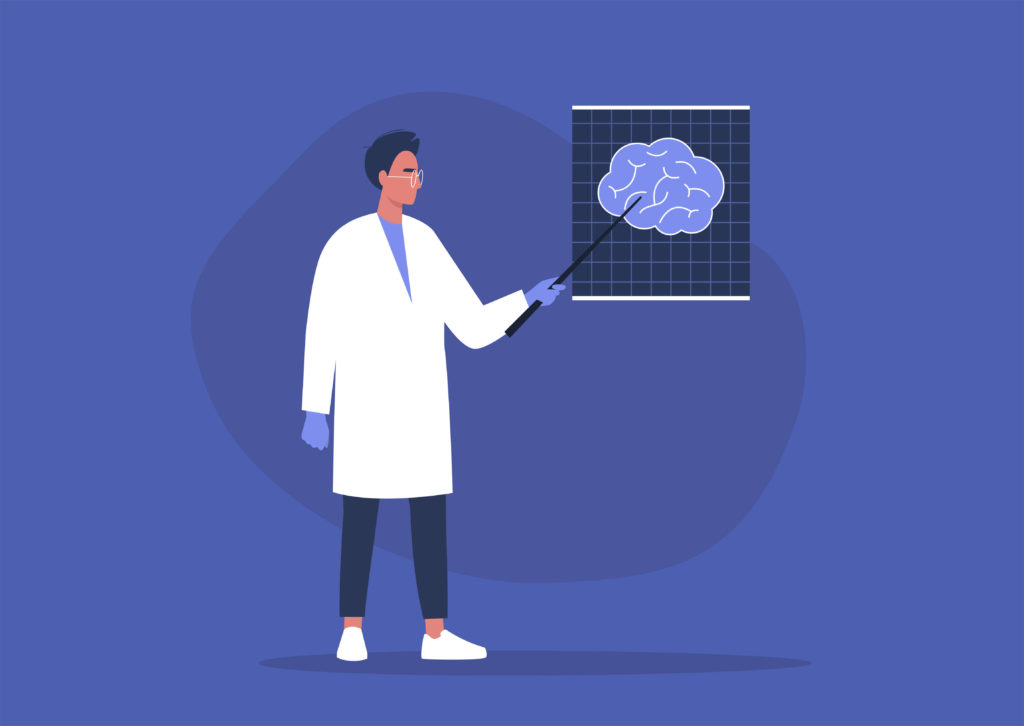
Carotid Artery Disease
Carotid artery disease occurs when fatty deposits (plaques) clog the blood vessels that deliver blood to your brain and head (carotid arteries). As you can tell, this is not ideal and requires intervention from a neurosurgeon to properly address the problem within.
Chronic Pain
Chronic pain, especially in the form of neuropathy can be debilitating for some. With proper treatment from a neurosurgeon, neuropathy pain can either be reduced or resolved entirely in some cases.
Head Injury
Head injury from some type of accident may cause many issues to arise. With the right treatment for a neurosurgeon, the head injury can be alleviated and the overall damage to the brain may be reduced.
Stroke
Strokes can be very common amongst certain subsets of the population. With this being said, it’s important to be seen by a neurosurgeon after a stroke to prevent any worsening of your condition and also address any issues caused by the initial stroke.
Pituitary Tumors
Pituitary tumors are times residing within your pituitary gland. These tumors may end up causing hormonal imbalances and require removal as soon as possible. Your neurosurgeon will be able to determine if you should have it removed.
Brain Tumors
Brain tumors are often associated with neurosurgery when one thinks of a common reason for neurosurgery. Neurosurgeons are greatly skilled in removing brain tumors. They’re also very skilled in determining the effects of a brain tumor on the body and how removing said tumor may improve your quality of life.
Hydrocephalus
Hydrocephalus is a buildup of fluid in the brain. This condition must be treated urgently. If left untreated, it may result in death. A neurosurgeon is able to relieve said pressure from the brain and drain the fluid properly to alleviate symptoms of hydrocephalus in most cases.
Trigeminal Neuralgia
Trigeminal neuralgia is sudden, severe facial pain. It’s often described as a sharp shooting pain or like having an electric shock in the jaw, teeth or gums. It usually happens in short, unpredictable attacks that can last from a few seconds to about 2 minutes. This condition is typically treated by a neurosurgeon who may use a method known as MVD, or microvascular decompression. This procedure may help resolve the underlying condition with trigeminal neuralgia.
Cervical Spine Disorders
Cervical spine disorders involve the neck bones (vertebrae), and spongy discs between the vertebrae, joints, muscles, and ligaments. As you can already tell, this is where a neurosurgeon does some of their best work.
Sciatica
Sciatica is a nerve-based issue caused by a herniated disc or bone spur in the spine, which may be resolved through successful treatment. A neurosurgeon can perform this surgery and possibly alleviate the patient of their sciatic nerve pain and discomfort.
Herniated Disc
A herniated disc can be successfully treated in most cases by a neurosurgeon. Herniated discs can produce mild to severe pain. Your neurosurgeon will be able to determine the best case scenario you can expect post-surgery.
Vertebral Fractures
Vertebral compression fractures (VCFs) occur when the bony block or vertebral body in the spine collapses, which can lead to severe pain, deformity and loss of height. These fractures more commonly occur in the thoracic spine (the middle portion of the spine), especially in the lower part. In rare cases, surgery may be necessary. Your neurosurgeon will be able to recommend the appropriate procedure, should you require surgery.
Lumbar Spinal Stenosis
Lumbar spinal stenosis is a narrowing of the spinal canal in your lower back that may cause pain or numbness in your legs. Being that neurosurgeons are spinal experts, they can perform surgery within this area of the body to possibly resolve this condition.
Spinal Tumors
Tumors emanating from the spine are particularly concerning for most patients. This is primarily due to the effects they can exude upon your spine. Pain, neurological problems, and possible paralysis are a few of the issues you may encounter if you are experiencing spinal tumors. Your neurosurgeon will most likely recommend surgical removal of the spinal tumor. This can help prevent further worsening of the condition and provide much needed relief for the patient.
Contact Us at Neurosurgery & Spine Consultants to Learn How We Can Help You!
Feel free to contact us using the form below. We’ll be sure to have you seen by one of our excellent surgeons as soon as possible. We look forward to hearing from you soon!
DISCLAIMER: No content on this site, regardless of date, should ever be used as a substitute for direct medical advice from your doctor or other qualified clinician.